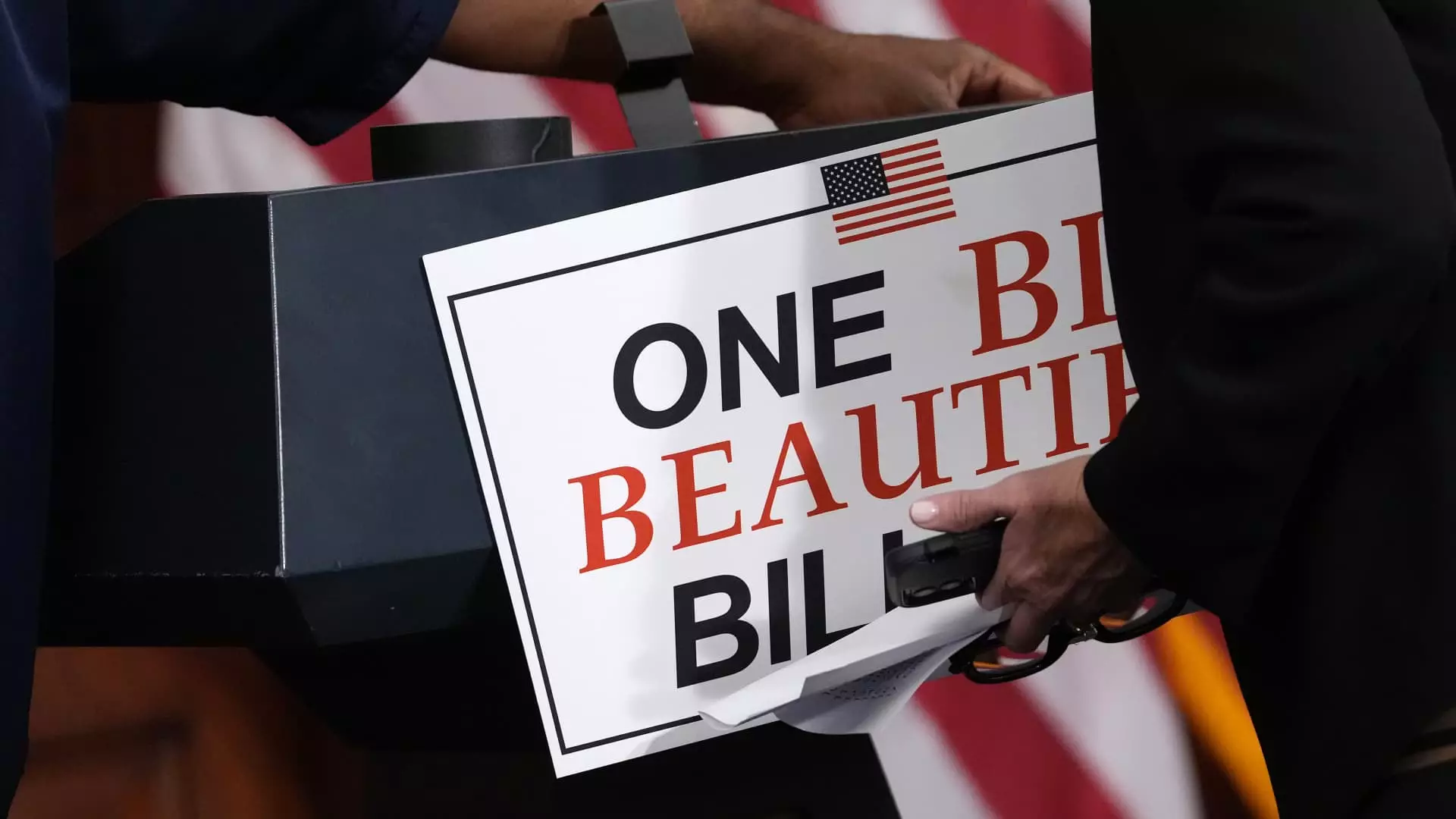The recent passage of the “One Big Beautiful Bill Act” by House Republicans represents a flawless case study in how politics can be manipulated to favor the affluent, all while cloaked in the pretense of economic growth and fiscal conservatism. In what can only be described as an egregious prioritization of Donald Trump’s tax cuts from 2017, this multi-trillion-dollar package not only seeks to make those cuts permanent but adds new tax breaks that disproportionately benefit wealthy individuals and corporations. Policymakers and citizens alike must come to terms with the reality that this piece of legislation does not serve the common good but rather entrenches an already unjust system designed to protect those with the deepest pockets.
Consider the new provisions intended to grant breaks for tip income and overtime pay; while these may appear beneficial on the surface, they do little to address the systemic inequities faced by low- and middle-income families. The implications of these tax benefits are clear: they will likely further widen the income gap between the working class and the elite, a chasm that continues to grow with every piece of legislation that prioritizes wealth accumulation over social welfare. The fact that this bill is moving forward, despite mounting concerns about its fiscal ramifications, speaks volumes about the priorities of the current Republican leadership.
A Cruel Blow to the Vulnerable
Amid the chatter of tax cuts and fiscal adjustment comes the unfortunate reality of significant spending cuts to essential programs for low-income families. Provisions that threaten Medicaid and SNAP benefits may very well be the most devastating features of this bill. It is profoundly disheartening to witness lawmakers turn a blind eye to the needs of the most vulnerable members of our society while showering countless benefits upon the wealthy. Many families rely on these safety nets to survive—what happens to them when the rug is pulled out from under them in the name of “spending reduction”?
Leading voices in the Senate, like Senator Ron Johnson, have raised alarms about cost concerns, yet their rhetoric seems hollow when juxtaposed with their willingness to support the dismantling of these crucial support systems. It’s a glaring hypocrisy that reveals the GOP’s prioritization of fiscal responsibility only when it’s convenient, and only when it concerns dragging down the working class. Economic rationality must be applied uniformly, especially when the decisions at hand affect lives. The American public deserves better than the political theater they are being subjected to.
The Byrd Rule: A Shield or a Sword?
The unique process of “budget reconciliation” offers Republicans a pathway to pass this bill with a simple majority, sidestepping the filibuster. Consequently, there’s an unsettling irony in relying on Congressional rules, such as the Byrd Rule, that ostensibly aim to keep the process accountable. This rule restricts unrelated spending and revenue adjustments, thereby asserting a form of rigor meant to safeguard fiscal discussions. However, it is questionable whether the intended protectionule will manifest in the negotiations ahead, especially with a slim Republican majority loitering in the House.
Howard Gleckman, a prominent policy expert, suggests that while changes will occur through the Senate, the framework still favors the rich, sidelining the lower echelons of the economic ladder. What’s more, the potential for sticking points—such as the controversial SALT deduction cap—illustrate the terrifying reality that even discussions meant to benefit those in high-tax states could falter in the negotiations.
Incomplete Solutions: Child Tax Credits on the Table
In a desperate bid to seem balanced, the House bill retains provisions aimed at expanding the child tax credit, a necessary acknowledgment of the financial burdens placed on families. While setting the credit’s maximum at $2,000 may seem progressive, the reality is that families need more substantial assistance to stave off financial hardships. Senators like Josh Hawley are advocating for an increase, yet the prevailing mindset within the House remains hesitant at best. This reluctance reflects an undercurrent of negligence toward the practical needs of families—those who bolster the economy through daily labor, not through stock market investments.
Ultimately, the measures being discussed in the Senate are more ambiguous than beneficial, as they are still tethered to a framework that does little to address the growing economic divide. Families are consistently overshadowed by larger economic concerns that favor corporations and millionaires, perpetuating the myth that the trickle-down economy works.
As the Fourth of July approaches, it’s disheartening to think of the “One Big Beautiful Bill Act” that may become law—an act that promises to reinforce socio-economic divides under the guise of national prosperity. Rather than acting as a unifying force, it exacerbates grievances and inequalities within our society, posing a question that should haunt every voter this election season: who are our policymakers truly serving?

